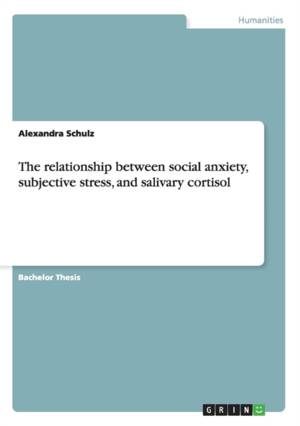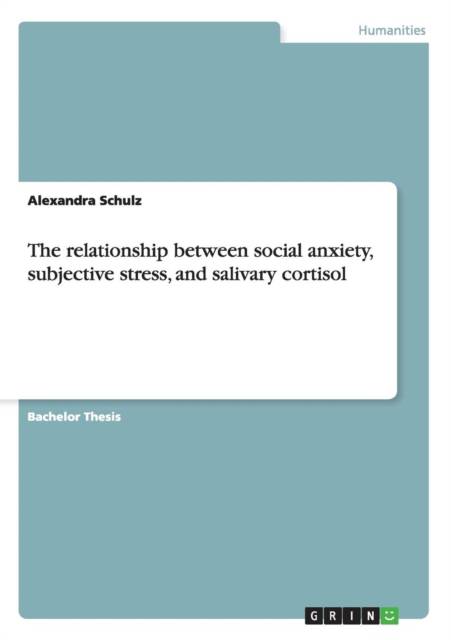
- Afhalen na 1 uur in een winkel met voorraad
- Gratis thuislevering in België vanaf € 30
- Ruim aanbod met 7 miljoen producten
- Afhalen na 1 uur in een winkel met voorraad
- Gratis thuislevering in België vanaf € 30
- Ruim aanbod met 7 miljoen producten
Zoeken
The relationship between social anxiety, subjective stress and salivary cortisol
Alexandra Schulz
Paperback | Engels
€ 43,95
+ 87 punten
Omschrijving
Bachelor Thesis from the year 2011 in the subject Psychology - Biological Psychology, grade: 1.0, University of Freiburg, language: English, abstract: Socially anxious individuals perceive social interactions as threatening to their safety and consequently exhibit specific physiological and psychological anxiety reactions, referred to as stress responses. Recent studies in patients with social anxiety have shown that pharmacologically induced cortisol increase reduced the psychological stress reactivity to a socio-evaluative stressor. These results suggest a potential mechanism by which cortisol and the psychological stress response interact. Thus, we hypothesized that the relationship between social anxiety and subjective stress would be mediated, or moderated by endogenous cortisol increase during stress. Specially, we hypothesize that cortisol increase acts as a buffer for the psychological stress response. A sample of 120 healthy participants underwent the Trier Social Stress Test for groups (TSST-G; von Dawans, Kirschbaum, & Heinrichs, 2011). Although, we found a direct relationship of social anxiety with both the perceived subjective stress, and the cortisol increase, neither our mediation, nor moderation hypothesis were confirmed.
Specificaties
Betrokkenen
- Auteur(s):
- Uitgeverij:
Inhoud
- Aantal bladzijden:
- 72
- Taal:
- Engels
Eigenschappen
- Productcode (EAN):
- 9783656433033
- Verschijningsdatum:
- 27/06/2013
- Uitvoering:
- Paperback
- Formaat:
- Trade paperback (VS)
- Afmetingen:
- 148 mm x 210 mm
- Gewicht:
- 104 g

Alleen bij Standaard Boekhandel
+ 87 punten op je klantenkaart van Standaard Boekhandel
Beoordelingen
We publiceren alleen reviews die voldoen aan de voorwaarden voor reviews. Bekijk onze voorwaarden voor reviews.








